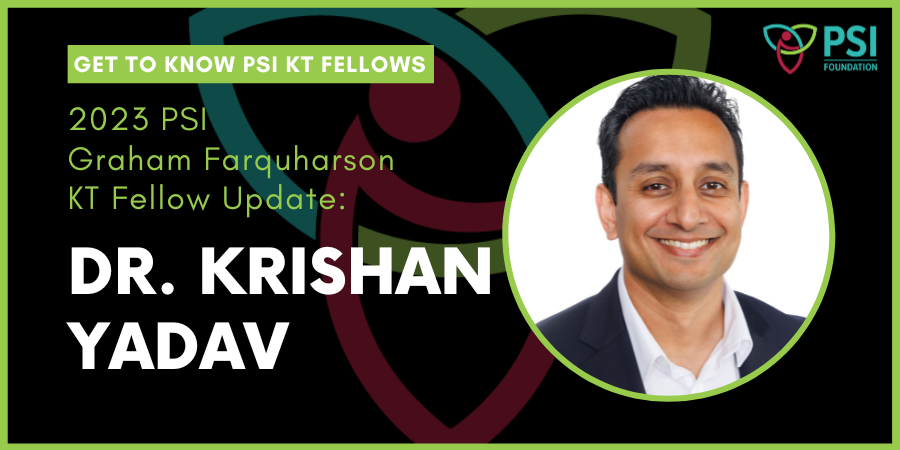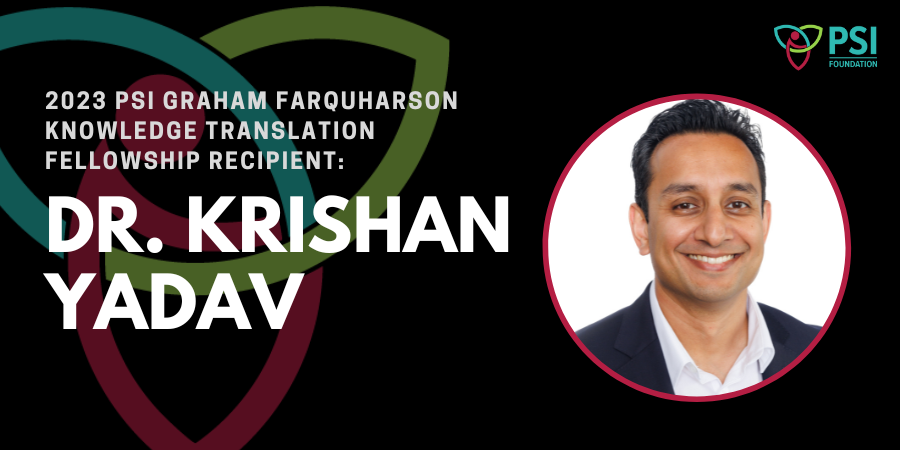Once our PSI Knowledge Translation (KT) Fellows take off from the starting line, they make strides as they move their knowledge translation activities and research program forward. As the finish line becomes clearer in their sight, we asked our fellows some questions to share their progress thus far, and what they look forward to in the remainder of their KT Fellowship.
What are some of your accomplishments from the KT Fellowship thus far?
My overall goal for the PSI Graham Farquharson KT Fellowship is to develop and implement better guidance for emergency clinicians when they treat adult patients with bacterial skin and soft tissue infections (SSTIs), which are one of the top 10 reasons to visit a Canadian emergency department. I assembled a multidisciplinary Steering Committee involving key stakeholders: emergency physicians, infectious disease physicians, patient partners with lived experience, pharmacy, nursing, and implementation scientists.
We created a list of key health questions that are important in the diagnosis and management of three types of SSTIs: bacterial cellulitis, skin abscess and life-threatening necrotizing fasciitis. Following this, I identified existing guidelines in the literature for SSTIs. The highest quality guidelines were selected for adaptation using the CAN-IMPLEMENT process, which is a systematic approach to adapting existing guidelines to formulate recommendations for a specific setting and knowledge user.
Our group has now developed the Canadian Emergency Department Best Practices Checklist for Skin and Soft Tissue Infections (SSTI Checklist). This is the first Canadian guidance on diagnosis and management of SSTIs and has been fully endorsed by the Canadian Association of Emergency Physicians. The SSTI Checklist was just accepted for publication with the Canadian Journal of Emergency Medicine. This work has the potential to improve patient outcomes at a national level by improving diagnostic accuracy and treatment strategies, while decreasing intravenous antibiotic overuse, unnecessary hospitalization, and treatment failure.
Please describe any challenges/barriers that you have encountered thus far and what actions were/will be taken to resolve them?
The main barrier to successfully completing a large program of research is the time required given my clinical responsibilities. Fortunately, with the support of this PSI Graham Farquharson KT Fellowship, I have ample protected time to focus on these projects.
What are some items/deliverables that you look forward to coming to fruition in the remainder of your KT Fellowship?
As mentioned, the SSTI Checklist will be published in the next 1-2 months. This summer I will be interviewing emergency physicians to understand barriers and drivers to using the SSTI Checklist. This information will then be used to develop KT tools to better help emergency physicians to use the SSTI Checklist during their clinical practice. Following this, I will conduct a pilot cluster randomized trial using the KT tools we have developed for SSTI Checklist implementation in Canadian emergency departments.


